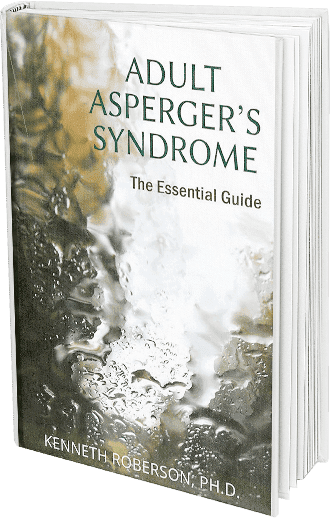I offer video consultations for couples throughout California.
Please complete the following after contacting Dr. Kenneth Roberson.

The reasons for seeking an assessment vary. Your history and current behavior may indicate you have Autism Spectrum Disorder. Perhaps someone else believes you have ASD and has recommended you be assessed. Your therapist or other professional may want to determine if you have ASD and has suggester you seek an assessment from an expert. Whatever the reason may be, it is important to understand what the assessment process involves.
There are two basic avenues to diagnosing Autism Spectrum Disorder in adults:
Because ASD is related to certain neurological activity in the brain, a certain type of evaluation known as neuropsychological testing is often used to establish whether someone has ASD. The specific areas that are examined and measured in this type of testing include motor and psychomotor skills, memory, executive functions, problem-solving, concept formation, visual-perceptual skills, degree of self-sufficiency in real-life situations, academic achievement (performance in school-like subjects), and personality assessment.
A mental health professional with the necessary credentials and expertise may also make a diagnosis of ASD. Typically, the process involves obtaining a history of the person’s social, emotional, academic and work background; assessing past documentation relevant to possible ASD; and observing how the person relates along certain social/emotional dimensions.
The uses of an Assessment of Autism Spectrum Disorder in Adults vary quite a bit.
Here is a list of some:
I have a specific process I follow in assessing and diagnosing Autism Spectrum Disorder:
My fee is $300 per session. I don’t charge for scoring the questionnaires or reviewing additional material, unless it is extensive. If a phone call or email correspondence is lengthy, I do charge for the time spent, otherwise I don’t. The total, then, for the assessment is $900.
Finally, the report I give you at the end of the third session is a verbal notification of the findings of the evaluation. If you wish to have a written report, which would include a description of the evaluation process, the results, and my diagnostic determination, I charge $500 for the report.
Please note that all payments are made directly to me. I do not bill insurance companies for my services. However, I can give you a superbill with all the necessary information for you to submit a claim for direct reimbursement. If you decide to use your insurance benefits, I strongly recommend checking with your carrier beforehand to find out your coverage for an ASD assessment.
As a trained ASD psychologist, I have worked with patients in San Francisco for many years, but I know how difficult it is for people further afield to reach me for help. Now I am offering video consultations for people with Autism Spectrum Disorder throughout California. My goal is to determine whether or not my therapy will benefit them without the need for travel, and help them manage their Autism Spectrum Disorder.
As part of my work, I help adults with ASD learn to achieve more balanced and successful lives. Now with my video conference availability, I can help people with ASD within California find the same success!
My mission is to help everyone with Autism Spectrum Disorder thrive and lead productive lives without the burden of mental health problems. My video conference service has been set up to allow ASD patients in California to reach out to me as easily as possible, helping them to start their journey towards high-functioning behaviors and more successful lives. This includes:
Click the ‘Get Started’ button below to complete the intake process. Then, we will arrange a video consultation, and begin your journey to a successful life with ASD.
During that time, I will not be able to respond to email messages. So, in order to avoid missing your message, please DO NOT email me until I return on October 7th.
Once I am back in the office, I hope to hear from you and will respond as quickly as possible. Thank you for your patience.

Are you looking for a reference guide about Asperger’s in adults?
Do you have questions you’d like to ask an expert in adult Asperger’s?